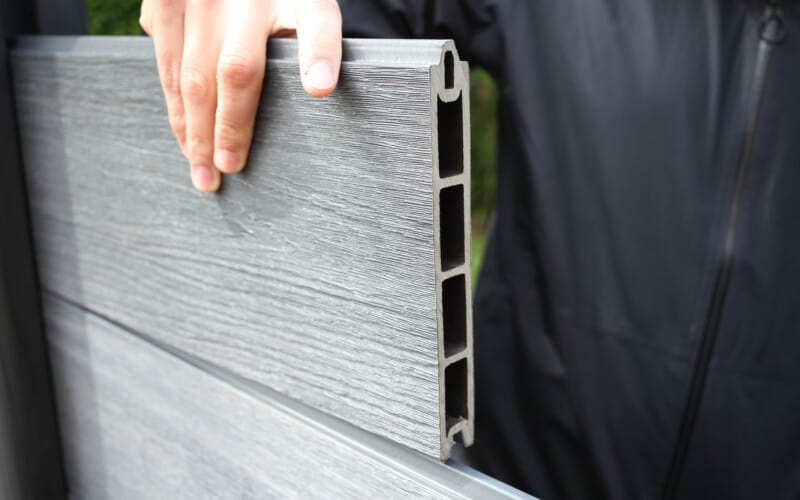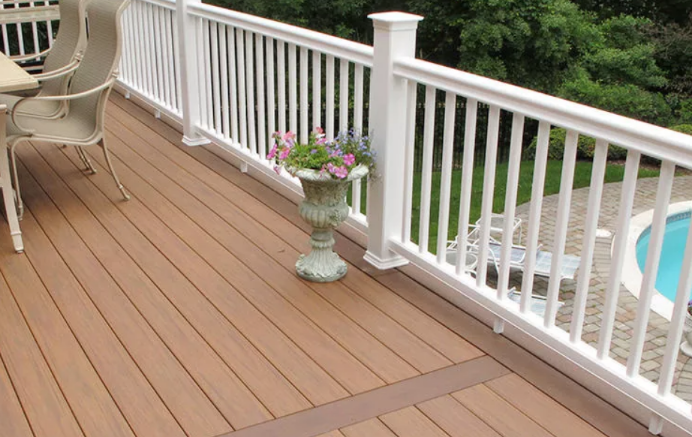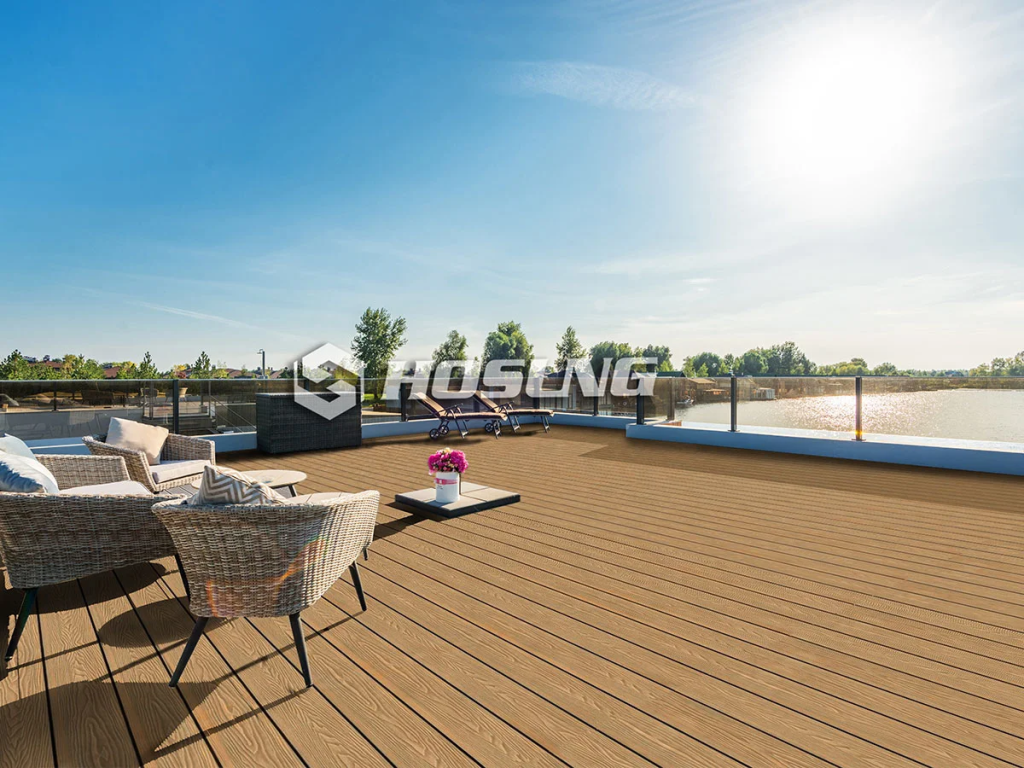If you want to securing your property, enhancing your outdoor space, and increasing the value of your home, choosing the right fencing material is essential. In Canada, homeowners are increasingly turning to composite fencing as a modern, low-maintenance, and eco-friendly alternative to traditional wood and metal fences. However, one of the most common questions Canadians have is: what are the composite fencing prices in Canada? In this guide, we’ll explore the costs, benefits, types, installation, and purchasing tips for composite fencing, helping you make an informed decision before you invest in your garden fence.
Table of Contents
What Is Composite Fencing?
Composite fencing is made from a combination of wood fibers and recycled plastic, blended together to create a durable, long-lasting material that mimics the appearance of natural wood. Unlike traditional timber fences, composite fences do not warp, rot, or require frequent painting.
The key features of composite fencing include:
Durability: Resistant to weather conditions, pests, and decay.
Low Maintenance: Requires only occasional cleaning with soap and water.
Aesthetic Appeal: Available in various colors and wood-like textures.
Eco-Friendly: Often made from recycled materials, reducing environmental impact.
This makes composite fencing a popular choice for Canadian homeowners who want a fence that combines elegance, practicality, and long-term value.
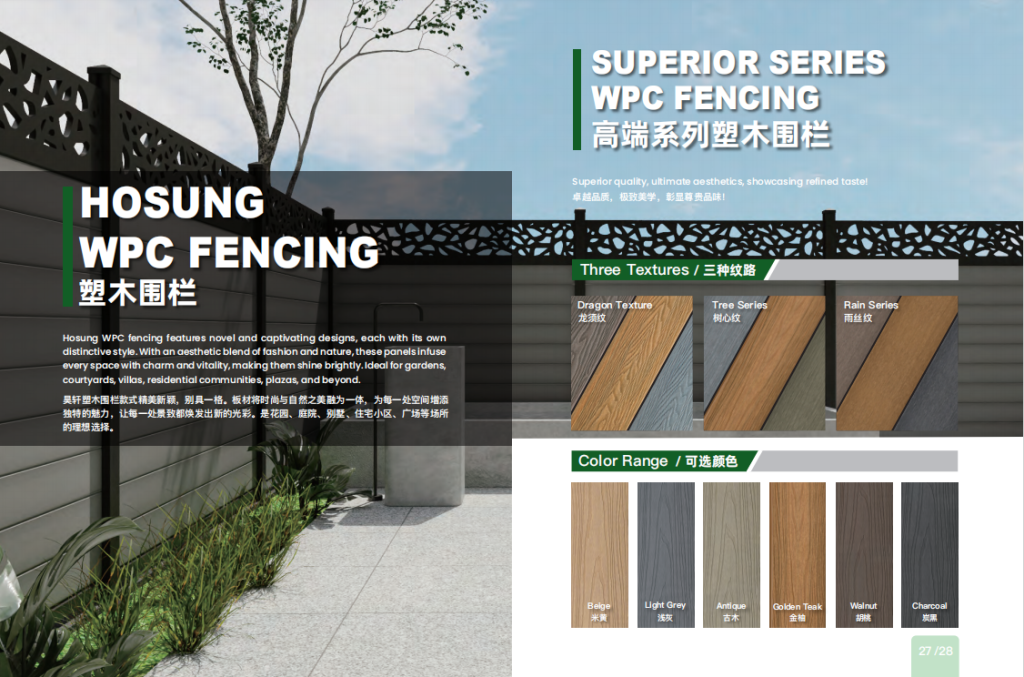
Factors Affecting Composite Fencing Prices in Canada
The price of composite fencing in Canada varies widely depending on several factors. Understanding these variables can help you budget effectively and choose the right option for your property.
1. Fence Material Quality
Not all composite fences are created equal. High-quality composite boards contain a higher ratio of wood fibers to plastic, offering better strength, color retention, and texture. Premium materials often cost more initially but last significantly longer, making them a worthwhile investment.
2. Fence Height and Length
Fencing prices are usually calculated per linear foot or per panel. Naturally, the taller and longer your fence, the higher the total cost. For instance, a 6-foot tall privacy fence covering 100 feet of perimeter will cost more than a 4-foot garden fence of the same length.
3. Design and Style
Composite fences come in various designs, including:
Solid Privacy Panels: Ideal for full backyard privacy.
Picket Fences: Classic garden-style fencing for decorative purposes.
Lattice Fencing: Adds aesthetic appeal while maintaining partial visibility.
More intricate designs or custom colors may increase the price.
4. Installation Costs
Professional installation is recommended to ensure the longevity and stability of your fence. Installation costs depend on:
Terrain and soil type
Labor rates in your region
Additional hardware like posts, gates, and fasteners
DIY installation is possible but requires some expertise and tools, which can save money but may increase risk if done incorrectly.
5. Regional Variations
Canada is vast, and prices can vary depending on the province or city. Urban areas like Toronto or Vancouver typically have higher costs for materials and labor compared to smaller towns or rural regions. Shipping fees for composite boards may also influence the final price.
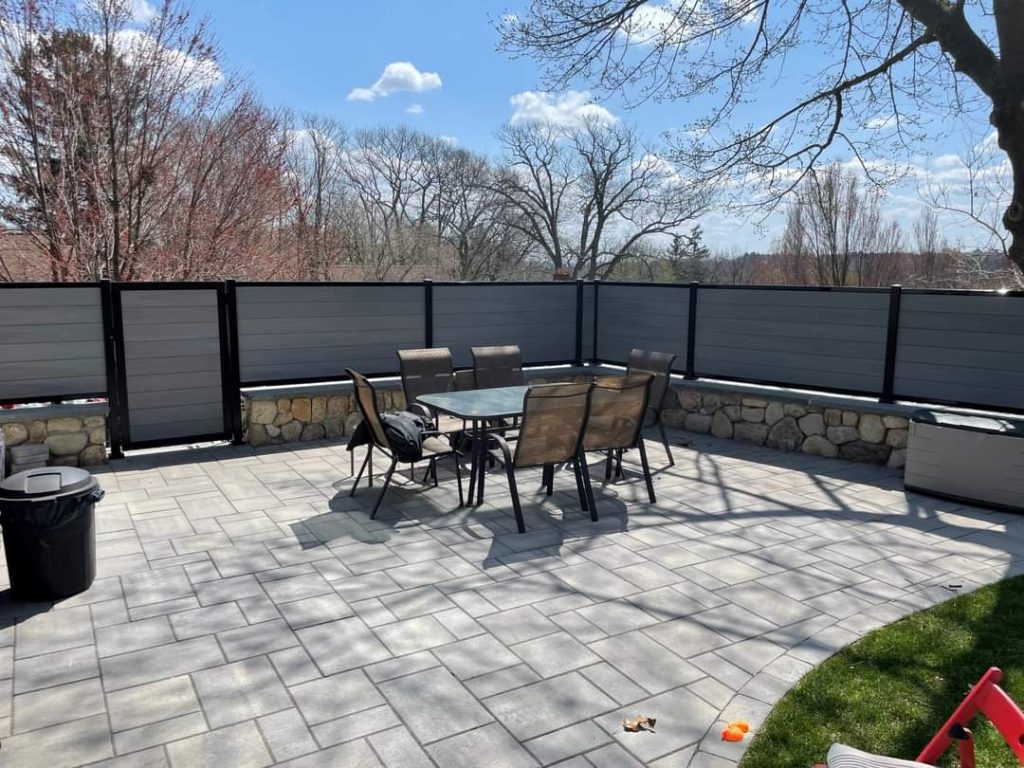
Average Composite Fencing Prices in Canada
Understanding the general price range helps homeowners budget effectively. Here’s a rough breakdown of composite fencing costs in Canada:
Per Linear Foot: $50–$100 CAD (materials only)
Per Panel (6 ft x 8 ft): $120–$250 CAD
Complete Installation: $70–$150 CAD per linear foot
These prices can fluctuate based on the factors mentioned above. For example, premium brands or custom designs can push the cost higher, while basic pre-made panels may be more affordable.
It’s also important to consider long-term value. While composite fencing may have a higher upfront cost compared to wood, its durability and low maintenance requirements often make it more economical over 10–20 years.
Advantages of Composite Fencing
Investing in composite fencing provides multiple benefits, which explain its growing popularity in Canada.
1. Longevity
Composite fences are built to withstand Canada’s harsh weather, from icy winters to humid summers. Unlike wood, composite won’t rot, warp, or splinter over time.
2. Low Maintenance
No need for yearly staining, painting, or sealing. Cleaning is simple—just rinse with water and mild soap. This saves time, effort, and ongoing maintenance costs.
3. Eco-Friendly Option
Many composite fences are made from recycled wood fibers and plastics, which helps reduce waste. Choosing eco-friendly fencing can also contribute to your green living goals.
4. Aesthetic Flexibility
Composite fences come in multiple colors, textures, and styles, allowing homeowners to match the fence with the exterior of their house or landscape design. Some composites even mimic premium hardwood like cedar or redwood.
5. Enhanced Security and Privacy
For those looking to secure their property, composite fencing provides a solid barrier that is difficult to climb or break through. Privacy panels also block visibility from outside, perfect for backyards, gardens, or pool areas.
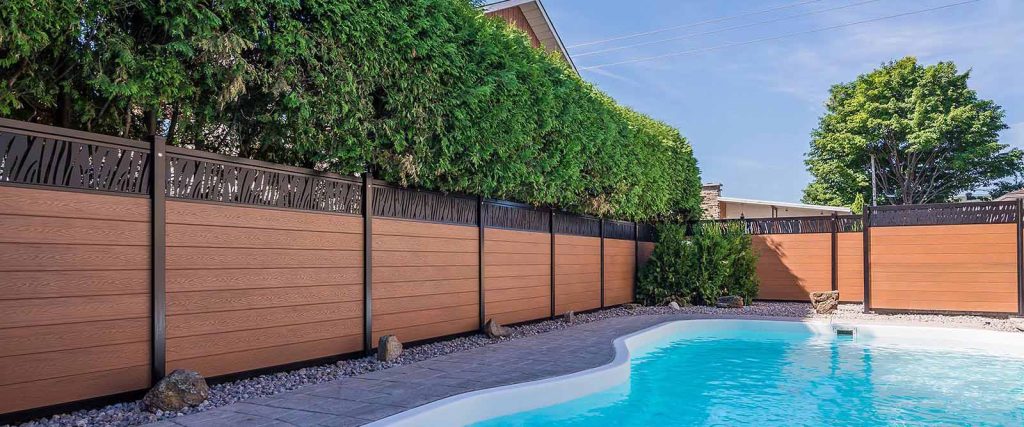
Comparing Composite Fencing to Traditional Wood Fences
To truly understand the value of composite fencing, it’s helpful to compare it with traditional wood options:
| Feature | Composite Fencing | Wood Fencing |
|---|---|---|
| Lifespan | 20–25 years | 5–15 years |
| Maintenance | Low | High (painting, sealing) |
| Resistance to Elements | Excellent | Moderate to Poor |
| Pest Resistance | Resistant to termites & rot | Susceptible |
| Initial Cost | Higher | Lower |
| Environmental Impact | Often recycled materials | Deforestation risk |
From this comparison, it’s clear that although the initial investment for composite fencing in Canada is higher, the long-term benefits make it a cost-effective choice.
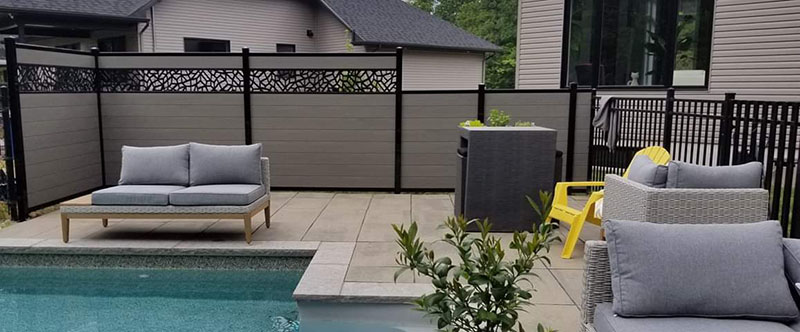
How to Buy Composite Fencing in Canada
When looking to buy composite fencing in Canada, there are a few steps to follow to ensure you get the best price and quality.
1. Research Suppliers
Start by exploring local fencing companies, home improvement stores, and online retailers. Popular options include Home Depot Canada, RONA, Lowe’s Canada, and specialized composite fence manufacturers.
2. Request Quotes
Get multiple quotes from suppliers or contractors. Include details such as:
Fence length and height
Style preference (privacy, picket, lattice)
Additional features like gates or post caps
This will help you compare pricing and services.
3. Check Reviews and Warranties
Look for companies with positive customer reviews and comprehensive warranties. Warranties often cover color fading, structural defects, and materials, giving you peace of mind.
4. Consider DIY vs. Professional Installation
While DIY installation may save money, professional installation ensures your fence is level, stable, and long-lasting. Many suppliers offer installation packages with a guarantee.
5. Timing Your Purchase
Composite fencing prices may fluctuate seasonally. Buying in off-peak periods can save money, as demand is lower and suppliers may offer discounts.
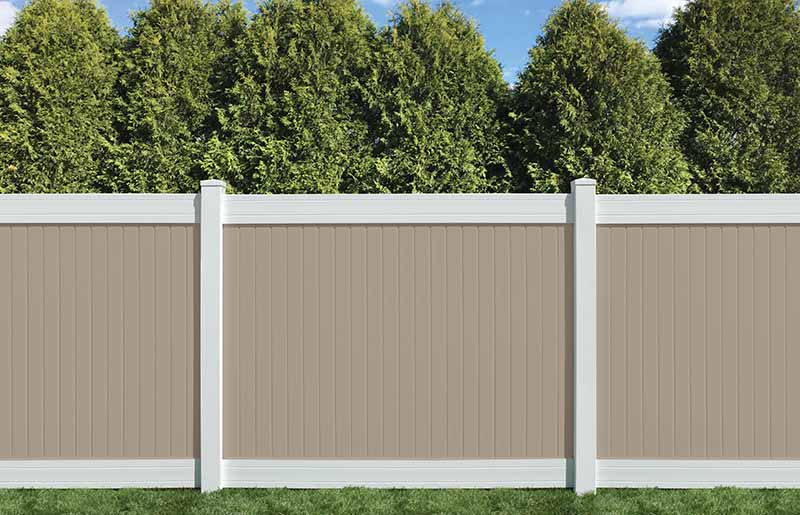
Additional Tips for Cost-Saving
Even though composite fencing is more expensive upfront, there are ways to manage your budget:
Buy in Bulk: Purchasing panels in bulk often reduces the per-unit cost.
Opt for Standard Colors and Sizes: Custom colors and designs can be pricey. Standard options often cost less.
Reuse Existing Posts: If your current fence posts are still in good condition, you may be able to reuse them.
Compare Brands: Not all composite fencing brands offer the same quality. Compare warranties, reviews, and performance before buying.
Plan Ahead: Proper planning reduces mistakes, which can increase costs.
Additional Considerations for Homeowners
Beyond material and installation costs, consider:
Property size: Larger properties require more panels, increasing total investment.
Terrain: Sloped or uneven land may require special post adjustments, adding to labor costs.
Gates and accessories: Matching gates and decorative elements can influence the overall composite fence panels price.
Planning these factors in advance ensures an accurate budget estimate.
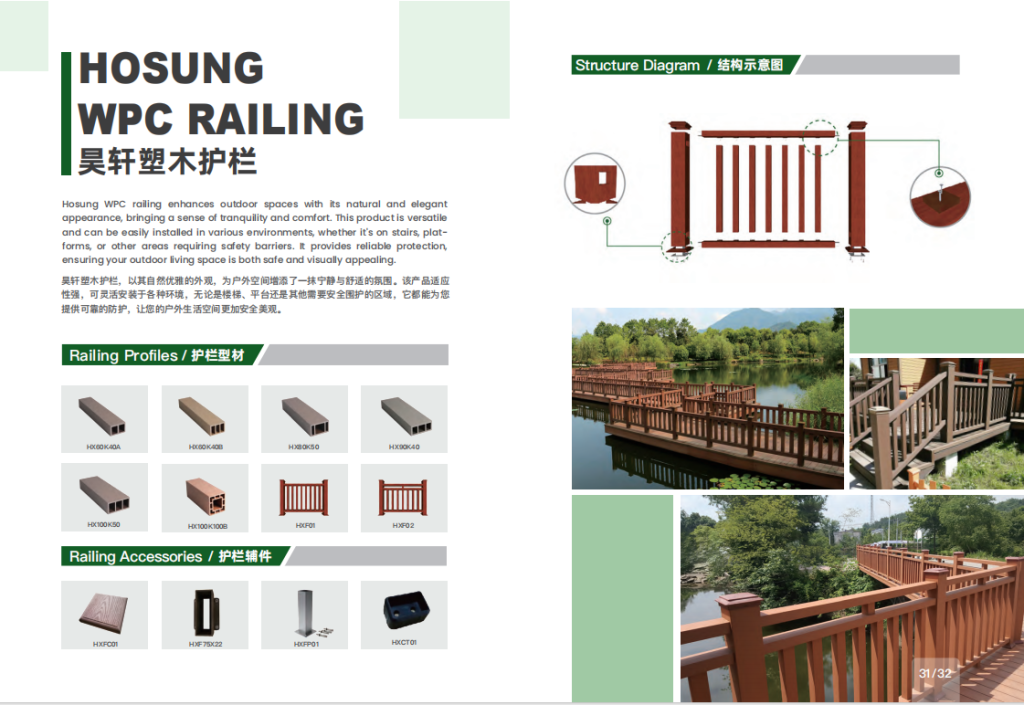
Popular Garden Fence Designs Using Composite Material
Garden fences are not only functional but also enhance the overall aesthetic of your outdoor space. Composite fencing provides flexibility in design, allowing homeowners to create beautiful, long-lasting fences.
1. Classic Picket Fence
The traditional picket fence design offers charm and elegance. Composite picket fences require less maintenance than wood and maintain their color and shape for years.
2. Privacy Panels
Ideal for backyard spaces, pools, and patios. Solid composite panels block noise, reduce visibility, and offer a sleek, modern look.
3. Lattice Top Fence
Lattice top fencing adds decorative flair to gardens while allowing air and light to pass through. Composite materials ensure the lattice stays intact and attractive for many years.
4. Horizontal Slat Fence
Modern and minimalist, horizontal composite fences provide a clean, contemporary look for Canadian homes. They also offer excellent privacy when boards are closely spaced.
Maintenance Tips for Composite Fencing
Even though composite fencing is low maintenance, following some simple care practices can extend its life and appearance:
Regular Cleaning: Wash the fence periodically with water and mild soap.
Avoid Harsh Chemicals: Do not use bleach or abrasive cleaners.
Inspect for Damage: Check posts and panels for cracks or loose boards.
Prevent Mold and Mildew: Ensure proper drainage around the fence to reduce moisture buildup.
Following these tips will help your composite fence remain beautiful and functional for decades.
Final Thoughts on Composite Fencing Prices in Canada
Choosing a composite fence from Hosung is a smart investment for Canadian homeowners who want durability, low maintenance, and aesthetic appeal. While the upfront cost is higher than wood or chain-link fencing, the long-term benefits, environmental advantages, and reduced maintenance costs make it worthwhile.
When planning your garden fence, keep these key points in mind:
Budget realistically for both materials and installation.
Compare suppliers and request multiple quotes.
Consider your fence style and design preferences carefully.
Factor in long-term savings from reduced maintenance and longer lifespan.
By understanding composite fencing prices Canada and following the steps outlined in this guide, you can confidently choose the right fence for your home, garden, or backyard. Investing in a composite fence is not just about enclosing your property—it’s about enhancing your outdoor lifestyle with a beautiful, durable, and sustainable solution.

